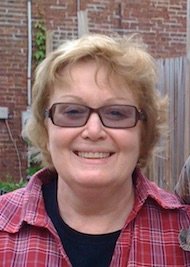
Mary McTamaney
By Mary McTamaney
As Black History Month draws to a close and Women’s History Month begins, a story came to my attention that bridges the two celebrations. I saw an old Newburgh News article about the 1941 vocal concert performed at NFA by a world-famous singer, Marian Anderson. The News reported “Hudson Valley residents who were fortunate enough to gain entrance to Newburgh Free Academy auditorium on Wednesday evening are recovering today from a spell cast over them by Marian Anderson, the contralto. In addition to Miss Anderson’s consummate artistry, her audience was warmed by her personal charm, the poise of her platform manner and her graceful reception of its thunderous applause.”
Indeed, the standing ovations offered on the evening of November 12, 1941 demonstrated the joy felt by Newburghers and regional neighbors to witness one of the era’s greatest performers.
Miss Anderson was a mega-star in the mid twentieth century, selling out concert halls around the country and the world. She possessed an extraordinary pure contralto voice that she had nurtured since childhood. That voice amazed her family and neighbors in Philadelphia at the turn of the last century. As a child at church, she sang many solos and her congregation raised the money for her to have a professional voice coach. Her father, a coal and ice dealer, saved and bought a piano and Marian taught herself to play along with the songs she was learning.
One reason Miss Anderson was such a beloved star performer was her connections to her audience and to the times she lived in.
In 1939, she performed on the steps of the Lincoln Memorial at the invitation of First Lady Eleanor Roosevelt after a planned Washington D.C. concert venue, Constitution Hall, turned her away with their rule about white-only presenters. My mother and grandparents described sitting in their living room by the radio to listen to that memorable concert that Mrs. Roosevelt made sure was broadcast nationwide. Even through a simple old radio speaker, Anderson’s voice left them forever awed.
Marian Anderson had her ear and heart tuned to the times as much as people tuned in to her.
In Newburgh Free Academy, she selected some German folk and operatic pieces and delivered them in such practiced diction that she “wrenched the hearts” of many native German speakers in the audience who knew their loved ones were “now deprived of this beauty by Hitler.” She also sang classic and popular songs including American Folk and Gospel selections and left the audience in tears after her performance of Bizet’s “Agnus Dei” a fitting hymn for her time. Its lines include: “Oh, lamb of God, have compassion upon us. Thou that takest away the world’s guilt, may thy peace be with us, may thy peace be with us.”
Her accompanist for the concert was Franz Rupp, a well-known pianist who had fled Europe as Hitler advanced and made Newburgh his home and the place where he offered many more concerts through the years.
Yet none were as gloriously remembered by that generation as the evening with Miss Marian Anderson. That concert was one in a long series of great musical moments brought to Newburgh by a local citizen volunteer group, The Three Arts Society, led by Mrs. Elizabeth Pattee Wallach of Grand Street. Years of beautiful performances were booked, promoted and staged by these dedicated citizens.
It was a brief twenty-four days after the evening with Marian Anderson that Newburgh radios first caught the news that the Japanese had bombed Pearl Harbor and Americans would soon be fighting in a world on fire.